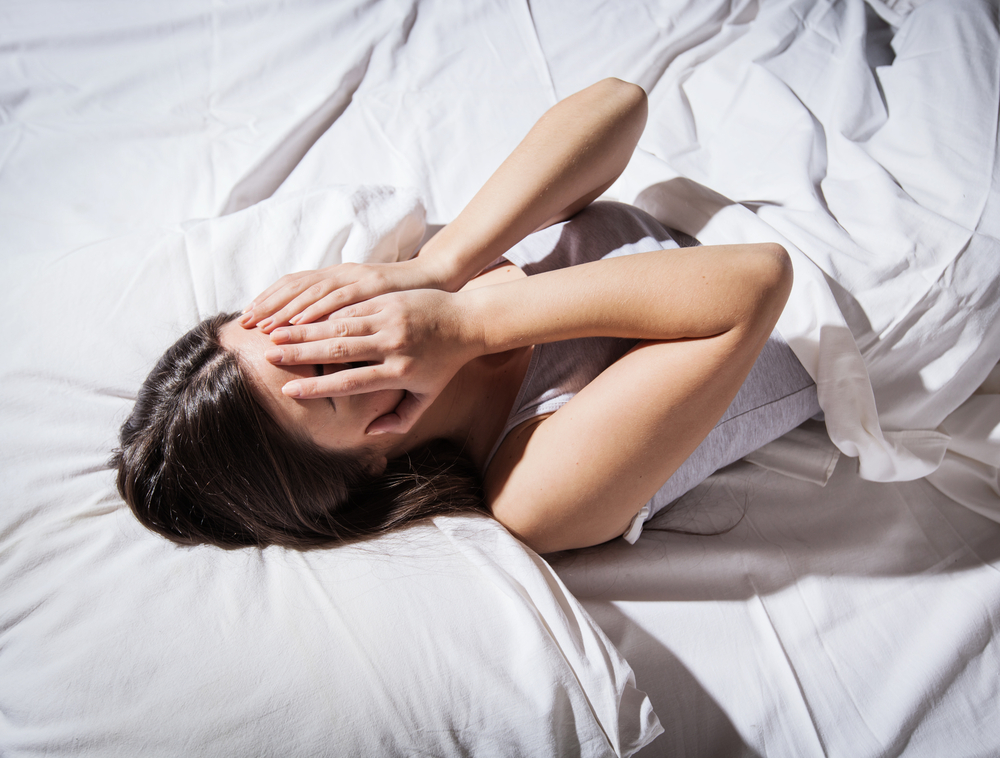Depression & Insomnia: Which Comes First?
It’s a genuine chicken and egg scenario, the close link between insomnia and depression and the reality that one may lead to the other. These two nemeses enjoy a bidirectional relationship, meaning insufficient sleep can lead to fatigue and depression and elevate the risk of developing sleep disorders like insomnia.
It can be challenging to determine which came first. As many as 80% of those enduring depression report struggles with insomnia, and roughly 40% of insomnia patients have clinical depression.
Understanding this substantial relationship is vital in improving sleep quality and managing depression more effectively.
What Is Clinical Depression?
With depression, people feel a perpetual sense of sadness, negativity, or despair and exhibit varying symptoms, including:
- Disinterest in Favorite Activities
- Changes in Appetite
- Lack of or Too Much Sleep
- Sadness
- Problems with Concentration and Decision-Making
- Feeling Guilty or Worthless
- Notions of Self-Harm or Dying
- Inappropriate Sleep Schedules
These are only a few examples, and DSM-5 criteria require experiencing five or more of depression’s symptoms for at least two weeks. Also, for an official diagnosis of clinical depression, these issues must substantially raise concerns among those with whom you interact.
Clinical depression fosters a constant dire feeling or mood affecting your relationships, interests, and activities daily.
Next Steps
As concerning as it may be, a diagnosis of clinical depression is not a life sentence. However, this is not a diagnosis to take lightly, and seeking proper guidance and support is essential. Depression can become a deep, dark hole that can quickly overwhelm an individual and keep them stuck in an endless loop of sleepless despair.
It may be that achieving more quality rest can help minimize or eliminate your depression, solving your insomnia. A multi-faceted strategy is typically necessary to combat the many tentacles of depression and insomnia. You should begin by evaluating your habits around sleep and start practicing good sleep hygiene and better bedtime habits.
A few examples are:
- Establish a Consistent Bed and Wake Time
- Avoid Caffeine Late in the Day
- Don’t Eat for at Least Two Hours Before Bedtime
- Keep Your Bedroom Only for Sleep and Sex
- Avoid Consuming Alcohol in the Evening
Also, you should only be in bed when you are ready to sleep and get up if you cannot fall asleep. Remaining in bed will only allow this additional stress and anxiety to attach to your sleep and keep you from sleeping now and in the future.
If practicing good sleep hygiene doesn’t improve your sleeplessness then you are most likely caught in what we refer to as the “sleep paradox” which is the harder you try to sleep the less sleep you get. This is a common pattern we address with participants of our programs.
Depression and insomnia often go hand-in-hand, and both pose significant threats to your health and quality of life. It is common to wrestle these two conditions simultaneously, creating an endless loop, a nightmare that can be hard to escape.
If you find yourself in this position and considering self-harm or even suicide, you must seek professional help to overcome this significant life challenge.
Conquering depression and its related insomnia (or vice versa) is a daunting task that few can resolve on their own. A tangled web of unrealistic expectations and self-condemnation creates a Gordian’s knot of thoughts and emotions few can unravel by themselves.
Sleep Science Academy appreciates the depth of this issue, and our highly successful, science-based Dynamic Sleep Recalibration (DSR) program provides the exact type of support you need for this endeavor.
Every client works with their certified holistic health/sleep coach who prepares an individual plan to fit their needs and situation, like depression and insomnia, guiding them through the process to a lifetime of restful nights and pleasant, productive days.
With the Sleep Science Academy 100% money-back guarantee, you have nothing to lose except sleepless nights, that feeling of dread, and days of gloom and darkness.
Contact us today to learn more about The Sleep Science Academy Difference and schedule your complimentary sleep consultation to begin moving away from depression and sleeplessness.

